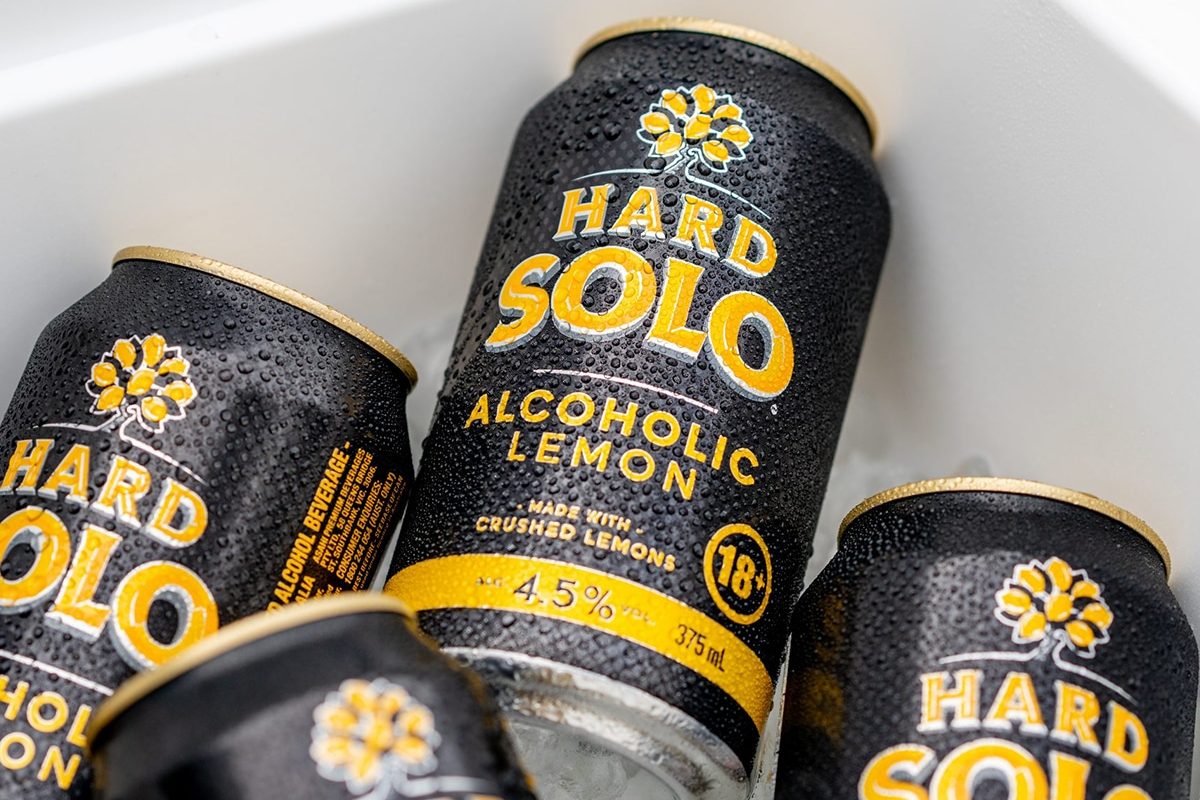The recently released alcoholic version of the soft drink Solo has been criticised by Teal crossbenchers and the Cancer Council of WA, who claim that it is marketed to minors.
Last week, the Cancer Council of WA submitted an official complaint about Hard Solo to the Alcoholic Beverages Advertising Code (ABAC). Several federal crossbenchers have now signed their names to the campaign, including Dr Sophie Scamps, Zali Steggall, Dr Monique Ryan, Allegra Spender, Andrew Wilkie, Kate Chaney, Zoe Daniel, and Kylea Tink, MP for North Sydney.
The complaints against Hard Solo claim that it is too visually similar to the non-alcoholic soft drink Solo, and therefore would be appealing to minors.
“This is a product that looks like a soft drink, tastes like a soft drink, has the same name as a soft drink, went through a self-regulatory process and seemingly was approved to be marketed,” said Tink.
Hard Solo, produced by Asahi Beverages, was approved by ABAC, which is a voluntary code that advertisers agree to adhere to when promoting alcoholic beverages. Tink and other crossbenchers are now calling for tighter regulation around advertising of alcoholic drinks, and met with industry stakeholders on Thursday.
“Hard Solo looks very different to regular Solo and we strongly refute any claims they can be confused,” an Asahi spokesperson stated.
“Hard Solo is sold in distinct black cans with prominent alcohol markings on the front of the can with the words ‘Alcoholic Lemon’ along with the 18+ logo, standard drinks and alcohol percentage in large and bright font,” they explained.
Additionally, Asahi spokespeople have highlighted that 85 per cent of consumers of Solo are adults, and that the soft drink is less popular among children.
The ABAC code was updated on 1 August to address concerns about the use of soft drink and confectionery flavours in alcoholic drinks. This is a growing issue in the industry, according to ABAC chair Harry Jenkins.
“Packaging with soft drink and confectionery themes is an area that attracts public complaints, as seen in recent determinations, and the new code provides greater clarity,” Jenkins commented.
In March 2022, a similar complaint was submitted to ABAC concerning Bundaberg alcoholic ginger beer. A spokesperson for Bundaberg Brewed Drinks made a similar claim about the adult target audience of non-alcoholic Bundaberg ginger beer.
“We do not promote our product to audiences under the age of 18. In fact, we are very considered around this point. At Bundaberg Brewed Drinks we are positioned as a premium adult craft-brewed non-alcoholic beverage. We are also proud to be a member of the Australian Beverages Council, which is committed to ensuring its member’s advertising is responsible and that they do not target children,” the spokesperson said.
The complaint was ultimately rejected, a decision ABAC reached based on the clear messaging that the drink was alcoholic.
“The Panel acknowledges the point being made by the complainant and beverages which are an alcoholic combination with a recognised soft drink will almost invariably raise the potential for confusion with the non-alcohol product. This means marketers must be very mindful to minimise confusion with a soft drink that could enhance the appeal of the marketing to minors,” the report read.

